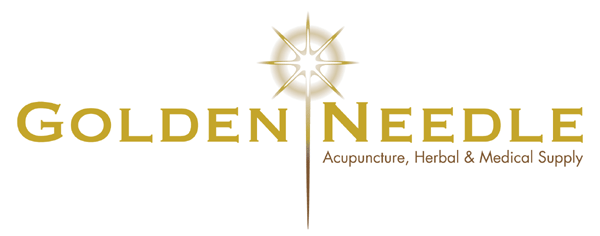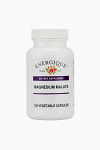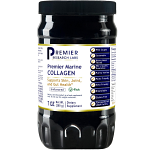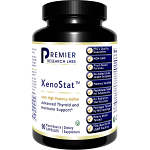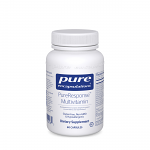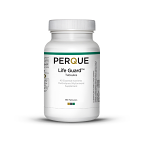$0.00 (0 items)
AMD
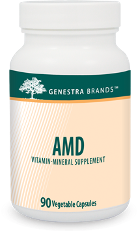
AMD
| SKU | GEN108 | |
| Brand | Genestra | |
| Unit Size | 90 capsules | |
| Dosage | Adult Dose:: Take one capsule daily with a meal, a few hours before or after taking other medication, or as recommended by your healthcare practitioner. | |
| Properties | Guaranteed to contain no added wheat, yeast, gluten, soy, sodium, sugar, artificial coloring or flavoring, antimicrobial preservatives, dairy or animal products. Ideal for vegans. | |
| Contraindications | If you are pregnant or breastfeeding, consult your healthcare practitioner prior to use. Hypersensitivity has been known to occur; in which case, discontinue use. | |
| Recommendations | Safety-sealed for your protection and for product freshness. Do not use if outer seal is missing or broken. Store in a cool, dry place. |
|
| Description |
Product overview:
Multimineral, vitamin C and amino acids formulation
• Source of antioxidant for the maintenance of good health, helps the body to metabolize carbohydrates, fats and proteins, helps in the function of the thyroid gland, helps to maintain immune function and provides support for healthy glucose metabolism (1)*
Ideal for vegans
• Convenient capsule format increases patient compliance
AMD combines a blend of natural, synergistic chelating agents and trace minerals, specifically formulated as a factor in the maintenance of good health; an antioxidant for the maintenance of good health. Helps the body to metabolize carbohydrates, fats and proteins; helps in the development and maintenance of bones, teeth and gums; helps to maintain healthy skin; and helps in connective tissue formation and wound healing. Helps in the function of the thyroid gland; helps to maintain immune function; and provides support for healthy glucose metabolism (2). The capsules are 100% pure vegetable-sourced.*
References:
1 NHPD Monograph on Multi-Vitamin and Mineral. October 2007.
2 NHPD Monograph on Multi-Vitamin and Mineral. October 2007.
Additional product info:
Epidemiological studies have shown that competitors in ultrarnarathon (> 42 km) footraces report a significantly higher incidence of symptoms of upper-respiratory-tract (URT) infections in the immediate postrace period when compared with the incidence among sedentary control subjects?during the same time period. A double-blind placebo-controlled study determined whether daily supplementation with 600 mg vitamin C for 21 days before the marathon, would reduce the incidence of symptoms of URT infections after participation in a competitive ultramarathon race. Symptoms of URT infections were monitored for 14 days after the race. Sixty-eight percent of the runners in the placebo group reported the development of symptoms of URT infection after the race; this was significantly more than that reported by the vitamin C-supplemented group (33%). The duration and severity of symptoms of URT infections reported in the vitamin C-supplemented nonrunning control group was also significantly less than in the nonrunning control group receiving the placebo. This study provides evidence that vitamin C supplementation may enhance resistance to the postrace URT infections that occur commonly in competitive ultramarathon runners and may reduce the severity of such infections in those who are sedentary (3). The effects of megadose Vitamin C in preventing and relieving cold and flu symptoms in a students test group, compared with a control group, were studied. Those in the control population reporting symptoms were treated with pain relievers and decongestants, whereas those in the test population reporting symptoms were treated with hourly doses of 1000 mg of Vitamin C for the first 6 hours and then 3 times daily thereafter. Those not reporting symptoms in the test group were also administered 1000-mg doses 3 times daily. Overall, reported flu and cold symptoms in the test group decreased 85% compared with the control group after the administration of megadose Vitamin C. Vitamin C in megadoses administered before or after the appearance of cold and flu symptoms relieved and prevented the symptoms in the test population compared with the control group (4).*
Adequate zinc status is critical for immune function. Zinc deficiency reduces generation of T cells, depresses humoral and cell-mediated immunity, leads to lymphopenia and thymic atrophy, and increases the frequency and number of infections. A prospective, randomized, controlled clinical trial was conducted involving 231 HIV-infected adults with low plasma zinc levels, who were randomly assigned to receive zinc (12 mg of elemental zinc for women and 15 mg for men) or placebo for 18 months. Zinc supplementation given to HIV-infected adults resulted in a 4-fold decrease in the likelihood of immunological failure, defined as a decrease of CD4+ cell count to <200 cells/mm3, after 18 months of use, compared with placebo. Zinc supplementation also significantly reduced diarrhea, compared with placebo (5).
Chromium (Cr) is an essential element required for normal carbohydrate and lipid metabolism. Signs of Cr deficiency have been documented on numerous occasions, including elevated blood glucose, insulin, cholesterol and triglycerides, and decreased high density lipoproteins (HDL) in humans consuming normal diets. A review reports that the response to Cr supplementation for glucose, insulin, lipids, and related variables is related to the amount and form of supplemental Cr, the degree of glucose intolerance, and the duration of the study. Subjects with glucose intolerance but not diabetes usually respond to 200 µg of Cr daily as Cr chloride or other more bioavailable forms of Cr (6). The NHPD recommendations for chromium supplementation in adults to provide support for healthy glucose metabolism are between 2.2-500 µg per day (7).*
Selenium at 3.5-400 ?g per day is an antioxidant for the maintenance of good health (8). In a prospective, randomized study design, immunological changes in free-living, healthy aged humans (57-84 years of age) given a placebo, 45 mg beta-carotene, 400 mcg selenium or 45 mg beta-carotene plus 400 mcg selenium per day for 6 months and after 2 months of discontinuation were evaluated. Selenium and selenium plus beta-carotene supplementation caused an increase in total T cells. The study found that selenium enhanced immune function (NK cell cytotoxicity) and phenotypic expression of T-cell subsets, whereas beta-carotene affected only immune function (9).
Iodine at 14-800 ?g per day helps in the function of the thyroid gland (10). L-Lysine at 150-3,000 mg per day provides an essential amino acid for the maintenance of good health and helps in the formation of collagen (11). L-Methionine helps to support liver function at 108.5-1,000 mg per day (12).*
Chlorella, a type of unicellular green algae, has been a popular foodstuff worldwide, especially in Japan, Taiwan, and Korea. It contains essential amino acids, protein, minerals, vitamins, chlorophyll, and bioactive substances. Administration of Chlorella in animals has demonstrated effects on numerous biochemical functions, such as remarkable antioxidant and anticataract effects in streptozotocin-induced diabetic rats and lowered blood glucose in animals. Also, anti-inflammatory and immunomodulatory activities have been reported. In addition to producing cytokines and boosting immune function, Chlorella can decrease oxidative stress and stress-induced ulcers in mice. The purpose of a study was to investigate whether 6 wk of Chlorella supplementation to smokers is protective against oxidative damage in a randomized, double-blinded, placebo-controlled trial. Fifty-two smokers were given 6.3 g of Chlorella vulgaris or placebo every day for 6 wk. Chlorella supplementation increased plasma vitamin C, a-tocopherol, and erythrocyte catalase and superoxide dismutase activities. Chlorella supplementation resulted in the conservation of plasma antioxidant nutrient status and improvement in erythrocyte antioxidant enzyme activities in smoking subjects (13).
Although dietary fibre both increase fecal bulk and lower serum cholesterol, the types of fibre that achieve these two effects may be different. Twenty-two healthy volunteers took approximately 20 g/day of concentrated dietary fibre from either carrot, cabbage, apple, bran, or guar gum or 31 g from pectin, added for 3-week periods to controlled diets. Total serum cholesterol fell by 13% on both guar and pectin with no significant change in high density lipoprotein cholesterol. Over the 3-week supplementation period, the other fibres were without effect with the exception of carrot, where both control and test high density lipoprotein levels fell. If, however, the 3rd week of the control was compared with the 3rd test week, the values for total cholesterol were 7% lower after apple while after carrot the high density lipoprotein cholesterol level was 10% lower than the control. Comparison of stool weights obtained in this study indicate that the fecal bulking action of dietary fibre is independent of its hypocholesterolaemic effect (14).*
References:
3 Peters EM, Goetzsche JM, Grobbelaar B, Noakes TD. Vitamin C supplementation reduces the incidence of postrace symptoms of upper-respiratory-tract infection in ultramarathon runners. Am J Clin Nutr. 1993 Feb;57(2):170-4.
4 Gorton HC, Jarvis K. The effectiveness of vitamin C in preventing and relieving the symptoms of virus-induced respiratory infections. J Manipulative Physiol Ther. 1999 Oct;22(8):530-3.
5 Baum MK, Lai S, Sales S, Page JB, Campa A. Randomized, controlled clinical trial of zinc supplementation to prevent immunological failure in HIV-infected adults. Clin Infect Dis. 2010 Jun 15;50(12):1653-60.
6 Anderson RA. Chromium, glucose intolerance and diabetes. J Am Coll Nutr. 1998 Dec;17(6):548-55.
7 NHPD Monograph on Multi-Vitamin and Mineral. October 2007.
8 NHPD Monograph on Multi-Vitamin and Mineral. October 2007.
9 Wood SM, Beckham1 C, Yosioka2 A, Darban3 H, Watson RR. beta-Carotene and selenium supplementation enhances immune response in aged humans. Integr Med. 2000 Mar 21;2(2):85-92.
10 NHPD Monograph on Multi-vitamin and Mineral. October 2007.
11 NHPD Monograph on Lysine. January 2008.
12 NHPD AbLS on L-Methionine. September 2009.
13 Lee SH, Kang HJ, Lee HJ, Kang MH, Park YK. Six-week supplementation with Chlorella has favorable impact on antioxidant status in Korean male smokers. Nutrition. 2010 Feb;26(2):175-83.
14 Jenkins DJ, Reynolds D, Leeds AR, Waller AL, Cummings JH. Hypocholesterolemic action of dietary fiber unrelated to fecal bulking effect. Am J Clin Nutr. 1979 Dec;32(12):2430-5.
|
|
| Ingredients |
Supplement Facts
Serving Size 1 Capsule
Servings per Container 90
Each Capsule Contains % DV
Vitamin C (ascorbic acid) 250 mg 417%?
Iodine (potassium iodide) 18 mcg 12%?
Zinc (zinc aspartate) 5 mg 33%?
Selenium (selenium HVP ? chelate) 25 mcg 36%?
Manganese (manganese aspartate) 9 mg 450%?
Chromium (chromium HVP ?chelate/ chloride) 25 mg 21%?
L-Cystine 100 mg *
L-Methionine 50 mg *
L-Lysine (L-lysine hydrochloride) 48 mg *
Alginic Acid (from Macrocystis spp./Laminaria spp.) 67.5 mg *
Apple (Malus domestica) Pectin 55 mg *
Chlorella (Chlorella pyrenoidosa) Whole Organism 2 mg *
? Percent Daily Value (DV) are based on a 2,000 calorie diet
* Daily Value not established
? Hydrolyzed vegetable (rice) protein
Other Ingredients: Hypromellose, magnesium stearate, magnesium silicate, cellulose
|
|
There are no reviews, yet! If you've tried this item, share your experience.
Only registered customers can review items. Please sign in to review!
Please register/login first.
